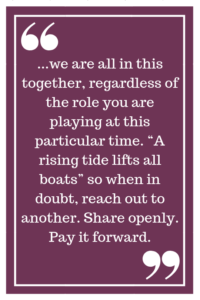It seems every company is embarking on a formal mentoring program. Many have met with mixed success. When the program and associated relationships fail to meet their objectives, there are several possible reasons:
 There is poor chemistry between mentor and protege. Let’s face it, the more the two parties have in common – especially in values and personality – the better.
There is poor chemistry between mentor and protege. Let’s face it, the more the two parties have in common – especially in values and personality – the better.- The mentors neglect their responsibilities to the mentee. This is very easy to do with the demands of their day job. Thus, it is imperative that both parties understand that in order for the relationship to be successful, both parties must put their all into the engagement.
- Mentors and mentees manipulate the other party to their advantage. Need I say more? If so, refer to the article for more gruesome details on how this can evolve.
These derailers are common, and much money and time has been wasted on implementing formal mentoring programs in many Fortune 500 companies. The remedy is fairly simply in concept:
- Define the ‘bottom line’ for the program before it gets started and get everyone’s buy-in on their role in making it successful.
- Be selective and thoughtful about who to pair up for the engagement.
- There can be no hidden agendas, or the credibility of the program is in jeopardy.
- Educate on process, set benchmarks, sign contracts, use active projects as the petri dish for learning, and monitor progress.
- Measure and give feedback throughout the program. The devil is in the details. Course correct during the program as needed – with people, process, and projects.
- Use coaching actively to ensure both parties are supported appropriately.
- Prepare for the ‘end’ and set a timeline for the formal mentoring relationship to end.
These steps may appear quite obvious. The key, as with all things, is in the execution. Which brings me to what I believe is the ‘secret sauce’ to effective mentoring. There are many ways to skin this cat; yet a few perspectives which I have seen present in the most effective mentoring arrangements:
- Focus on what you can learn and what you can teach – from both perspectives. This may seem apparent, yet often mentoring relationships turn into a simple networking relationship; i.e., “who can the mentor introduce to me to further my career?” This is a missed opportunity. We need to focus on what we want to learn as mentees – whether this be new skills, new industry knowledge, or even how to navigate through corporate waters. Throughout our careers, we need and want different things from our mentors and teachers. One size most certainly does not fit all – and we need and want different things depending on where we are in our careers. Who says you can only have one mentor? We need many types of mentors in our lives; think about it… in what areas do you need to grow and who can be an asset to you in this journey?
- Mentors – it is simply not about you. We have all been in conversations when the person hearing your story wants to ‘one-up’ your experience with something they have endured in their career. It is the infamous ‘I have walked 10 miles in the snow with no shoes’ story. Sure, there are times when the mentee wants to hear your story and learn how you managed your way through or around the obstacle. However, the guiding principle here is what you can teach or offer through your experience. This is not your opportunity to lament about your failures or accomplishments – unless it can truly benefit and help your mentee.
- The most successful relationships are those that encourage and support vulnerability and heightened self-awareness. As mentees, it is often scary to admit our shortcomings and embrace our blind spots. Yet, without doing so, we cannot move forward. Heightened self-awareness is a requirement to learning and growing. What do we observe about ourselves? What are we noticing about our reactions, our approaches, and how these are serving us (or not)? Mentors can help hold the mirror for us – and mentees must be receptive to hearing and embracing the feedback and observations.
We, as individuals, will have the opportunity in our careers to serve as a mentor for others, as well as be served by our own mentors. One parting thought: we are all in this together, regardless of the role you are playing at this particular time. “A rising tide lifts all boats” so when in doubt, reach out to another. Share openly. Pay it forward.













